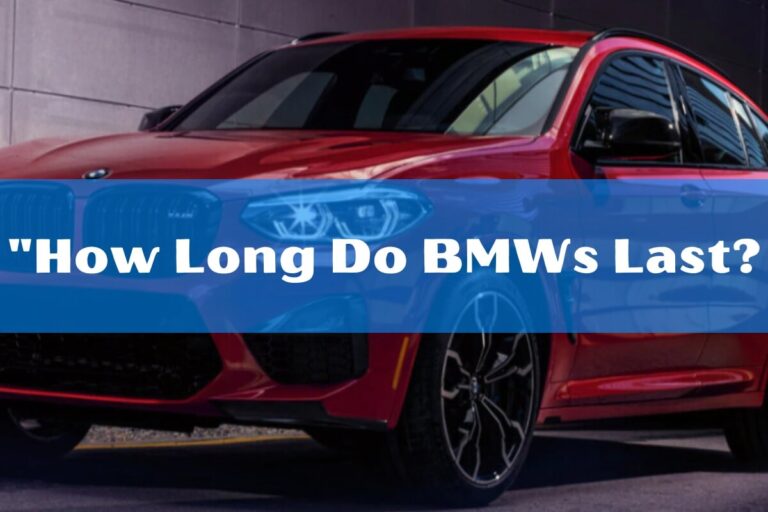BMW vs Mercedes Reliability: Which Luxury Brand is More Dependable?

When it comes to luxury vehicles, reliability is a crucial factor that can’t be overlooked. After all, you’re investing a significant amount of money, and you want to ensure that your vehicle will provide you with a smooth and hassle-free driving experience for years to come. Two of the most prestigious luxury car brands, BMW and Mercedes-Benz, are often pitted against each other in discussions about dependability.
When it comes to choosing a reliable car, two names stand out: Toyota and Honda. But how do they stack up against each other? Let’s examine the key factors that affect a vehicle’s durability and performance, and compare the two brands to help you make an informed decision.
The article will cover:
- Comparing reliability ratings from reputable sources like J.D. Power and Consumer Reports.
- Examining the average lifespan and longevity of BMW and Mercedes vehicles.
- Common reliability issues and problem areas for each brand.
- Maintenance and repair costs associated with owning a BMW or Mercedes.
- Warranty coverage and complimentary maintenance plans offered by the manufacturers.
- Safety and reliability features that contribute to a vehicle’s dependability.
- Factors such as proper maintenance, driving habits, and manufacturing quality that can impact reliability.
- Owner experiences and reviews from real-world BMW and Mercedes owners.
So, buckle up and let’s explore the realm of luxury car reliability, where BMW and Mercedes-Benz reign supreme.
Comparing Reliability Ratings
When it comes to assessing a vehicle’s reliability, one of the most trusted sources is the J.D. Power Vehicle Dependability Study. This annual study ranks cars based on the number of problems reported per 100 vehicles, with a lower score indicating better dependability.
In the 2021 J.D. Power Vehicle Dependability Study, BMW scored 108 problems per 100 vehicles, ranking significantly better than the industry average of 121 problems per 100 vehicles. Mercedes-Benz, on the other hand, scored 122 problems per 100 vehicles, slightly above the industry average.
Another reputable source for reliability ratings is Consumer Reports, which ranks vehicles based on predictability and takes into account a brand’s history. According to Consumer Reports, BMW ranks third overall, while Mercedes-Benz sits at a less impressive 24th position.
These ratings suggest that BMW has a slight edge over Mercedes-Benz when it comes to overall reliability, at least based on these two authoritative sources.
Longevity and Lifespan
One of the key indicators of a vehicle’s reliability is its longevity and lifespan. After all, a reliable car should be able to withstand the test of time and provide you with years of dependable service.
According to various studies and reports, BMW models can typically last up to 200,000 to 250,000 miles, with an average lifespan of at least 15 years. Mercedes-Benz vehicles, on the other hand, tend to have a slightly shorter lifespan, lasting up to 150,000 to 200,000 miles, with an average lifespan of over 10 years.
It’s important to note that these figures are just averages, and the actual lifespan of a vehicle can vary depending on several factors, such as proper maintenance, driving habits, and environmental conditions.
Common Reliability Issues
While both BMW and Mercedes-Benz are known for their high-quality engineering and attention to detail, no vehicle is perfect, and both brands have their fair share of common reliability issues.
For BMW, some of the most frequently reported problems include:
- Issues with timing chains, oil leaks, and water pumps in certain engine models, particularly the N20 and N54 engines.
- Electrical and electronic system glitches, especially in older models.
- Suspension and steering component failures, which can be costly to repair.
On the Mercedes-Benz side, some of the common reliability concerns include:
- Electrical system issues, particularly in the EQ line of electric vehicles.
- Air suspension problems, with airbags and compressors failing prematurely.
- Rust and corrosion issues, which have led to recalls for certain models.
- Problems with the 4Matic all-wheel-drive system, including noisy differentials and driveshafts.
It’s essential to keep in mind that these issues may not affect all models or years, and regular maintenance and prompt attention to any problems can help mitigate potential reliability concerns.
Maintenance and Repair Costs
One aspect that can significantly impact a vehicle’s overall reliability and ownership experience is the cost of maintenance and repairs. Both BMW and Mercedes-Benz are luxury brands, and their vehicles tend to be more expensive to maintain and repair compared to mainstream models.
According to estimates from various sources, maintaining and repairing a BMW over a 10-year period can cost around $20,000, which is significantly higher than the industry average of $12,044. Mercedes-Benz, on the other hand, is slightly more affordable in this regard, with an estimated 10-year maintenance and repair cost of around $16,000.
Warranty Coverage
Both BMW and Mercedes-Benz offer comprehensive warranty coverage to provide peace of mind and protect their customers from unexpected repair costs. Here’s a quick overview of the warranty coverage offered by each brand:
BMW Warranty:
- 4-year/50,000-mile New Vehicle Limited Warranty
- 12-year Anti-Corrosion Warranty
- Complimentary Maintenance Plan (BMW Ultimate Care) for 3 years or 36,000 miles
Mercedes-Benz Warranty:
- 4-year/50,000-mile New Vehicle Limited Warranty
- No complimentary maintenance plan (optional pre-paid plans available)
When it comes to Certified Pre-Owned (CPO) vehicles, both BMW and Mercedes-Benz offer additional warranty coverage. For BMW CPO vehicles, you’ll receive the remainder of the new vehicle warranty, plus an additional 12 months of unlimited mileage coverage. Mercedes-Benz offers a similar CPO warranty, with the remainder of the new vehicle warranty, plus an additional 12 months of unlimited mileage coverage.
Safety and Reliability Features
In today’s automotive landscape, safety and reliability features play a crucial role in ensuring a vehicle’s dependability. Both BMW and Mercedes-Benz are known for their advanced technologies and cutting-edge safety systems.
Let’s take a look at the standard safety features offered by popular models from each brand:
BMW X5 Safety Features:
- BMW Active Driving Assistant
- Lane Departure Warning
- Blind Spot Detection
- Rear Cross-Traffic Alert
- Forward Collision Warning
- Pedestrian Detection
- Automatic Emergency Braking
Mercedes-Benz GLE Safety Features:
- Blind Spot Assist
- Active Brake Assist
- Attention Assist
- Crosswind Assist
- Mercedes-Benz Emergency Call System
While both brands offer a comprehensive suite of safety features, BMW’s Active Driving Assistant appears to be more advanced, with features like Lane Keeping Assist, Active Cruise Control, and Road Sign Recognition.
Factors Affecting Reliability
While the brand and model of a vehicle play a significant role in its reliability, there are several other factors that can influence a car’s dependability over time. Here are some key factors to consider:
Proper Maintenance: Regular maintenance, adhering to the manufacturer’s recommended service schedules, and using genuine parts can greatly enhance a vehicle’s reliability and longevity.
Driving Habits and Conditions: How you drive and the conditions in which you operate your vehicle can impact its reliability. Aggressive driving, extreme temperatures, and rough terrain can all take a toll on a car’s components.
Manufacturing Quality and Design: The quality of the materials used, the precision of the manufacturing process, and the overall design of the vehicle can all contribute to its reliability and durability.
Owner Experiences and Reviews
While statistics and ratings can provide valuable insights, it’s also important to consider the real-world experiences and reviews of BMW and Mercedes-Benz owners. Online forums, social media groups, and owner communities can be a great source of information and personal accounts.
Many BMW owners praise the brand for its sporty handling, responsive performance, and overall driving dynamics. However, some owners have reported issues with electrical systems, engine problems, and high maintenance costs, particularly as the vehicles age.
Mercedes-Benz owners, on the other hand, often commend the brand for its luxurious interiors, smooth ride quality, and advanced safety features. However, concerns have been raised about electrical gremlins, air suspension problems, and rust issues in certain models.
Let’s Finish
When choosing between BMW and Mercedes-Benz, consider your needs, budget, and driving preferences. Both brands have strengths and weaknesses, and proper maintenance is crucial for reliability. Weigh the factors and make an informed decision. Remember, no brand is immune to issues, but research and understanding can lead to a reliable and rewarding ownership experience.





